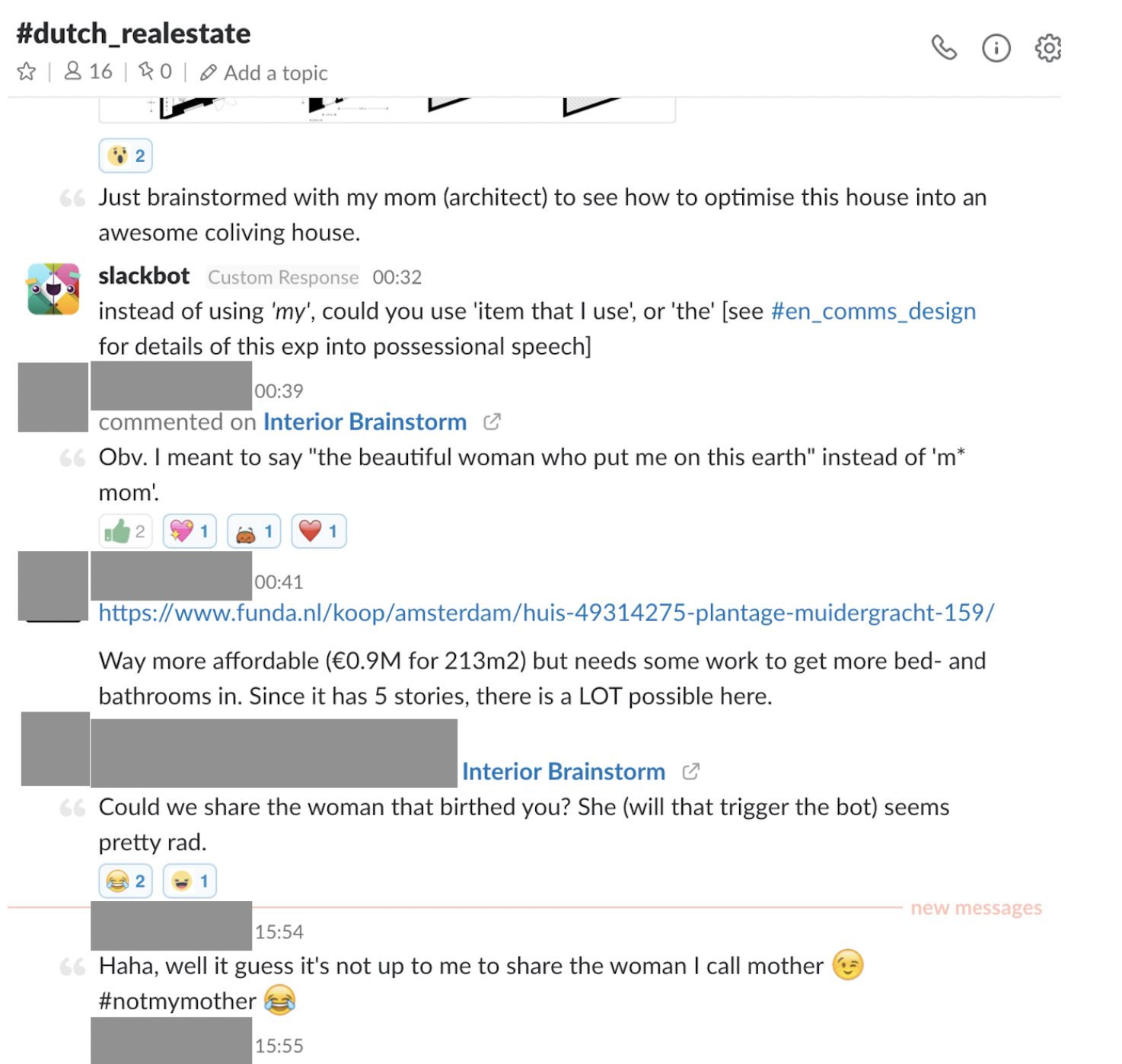summary
A four day long language intervention to reduce the use of possessional terms in digital conversation. Read more here
Rationale & context
Theory posits reality is embedded in the language of a culture, such that language comes to control culture, and cultural norms. More than culture, some have suggested that the influence of language on thought is ‘obligatory or at least habitual’: thought is guided by language [3]. Thus, language is an obvious place to start creating the realities we wish to see, in ourselves.
possessional speech experiment
Inspired by the book ‘The Dispossessed’ in which the spoken language is Pravic. Pravic reflects principles of Esperanto and utopian anarchism, such that ’the use of the possessive case is strongly discouraged’, a feature that also is reflected by the novel’s title. There is no property ownership of any kind. For example, at a certain point Shevek’s daughter, tells Shevek, “You can share the handkerchief I use”, rather than “You may borrow my handkerchief”, thus conveying the idea that the handkerchief is not owned, but is merely used by Shevek’s daughter. For this experiment the use of words such as ‘my/your/our/ his / her’ were accompanied with a nudge to consider an alternative.
tools
A slackbot to nudge users when using terms such as ‘my’, ‘your’, ‘his/hers’. On typing “My room”, the slack bot would respond to encourage users to consider alternative sentence structure in the absence of possessional terms. Examples of the nudges included:
Is this item really yours?
Instead of saying ‘my’, could you try an alternative? e.g. ‘the XX that i use’
Does this thing really belong to you?’
learnings & Findings
Different communities have different language needs. We discovered that, for a community of vehicles where possessions are an integral part of how things run, uniquely called for use of possessional terms for their community to function.
Despite the fact that we all had our current language imposed upon us, not everyone was equally motivated by the idea of nudging their language. Some people found even the concept hard offensive and anger inducing. For some, the bot’s nudges hampered communication and others just weren’t into the idea of questioning possessional terms in the first place.
The intervention generalised to other domains: The bot only existed on slack, however communities who also used whatapp started to nudge each other, as well as in spoken dialogue which needed no explicit nudges.
Here you can see the slack bot at work
